CTC Accreditation Launchpad(opens in new window)
EPPU Preparation Providers Unit (EPPU) Webpage(opens in new window)
Interested in exploring other majors in the field of health and human services?
Informational Seminar
Wednesday, Dec. 13, 2023, 5–6:30 p.m.
Join us via Zoom
Are you interested in learning more about the Master of Arts in Psychology: Option in Psychological Science program here at Chico State?
Dr. Patrick Johnson, Psychological Science MA Program Coordinator, will be hosting a FREE informational seminar about the program on Wed. December 13th from 5:00-6:30pm via Zoom. Please email psy@csuchico.edu if you would like to register. This seminar will cover all of the basic information about the program including:
On this page you can find detailed information about the Psychological Science program. Specifically, you can find:
This program prepares students for doctoral work in psychology and/or for teaching at the community college level. Content course work is broad and encompasses major areas of academic psychology. Graduate content courses and seminars include human development, human learning, advanced general psychology, and contemporary issues. Methodology courses are required in psychometrics, research methods, and advanced statistics. A broad psychology background is the preparation most desired by doctoral programs. A broad psychology background is also the best preparation for teaching a variety of academic courses at the community college level. Research experience is emphasized in the research assistantship and in the required thesis or empirical research manuscript. Students acquire research experience with a selected faculty member, becoming part of their ongoing research activities. Teaching experience, including supervised teaching in the classroom, is invaluable for a teaching career, and most doctoral programs expect students to serve as teaching assistants. The research emphases and teaching interests of the faculty are diverse, encompassing both experimental and nonexperimental orientations, and representing areas such as biopsychology, cognition and learning, developmental, cross-cultural, perception, and social and personality psychology.
Meet the students in the 2022-2023 and 2023-2024 cohorts:
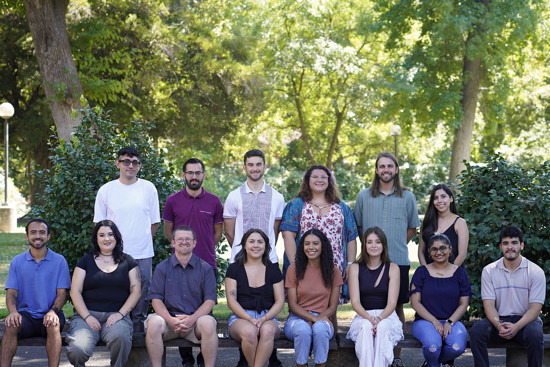
Second-year students (standing, from left to right): Daniel B., Recamier, Rocci, Emily, Daniel P., and Arely.
First-year students (seated, from left to right): Dylan, Marina, Daniel M., Elly, Isabella, Rory, Dulshi, and Jose.


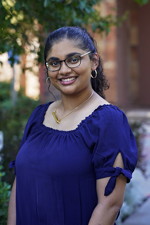


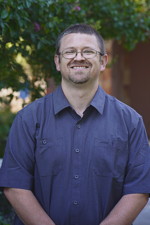
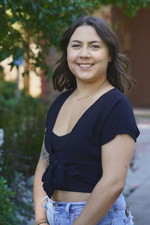

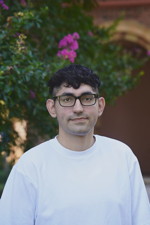
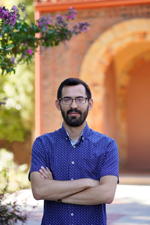

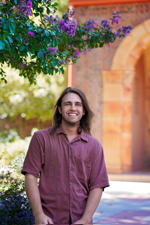
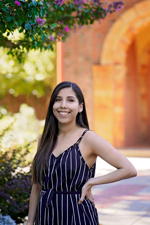
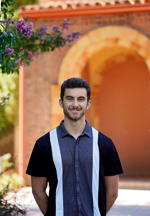
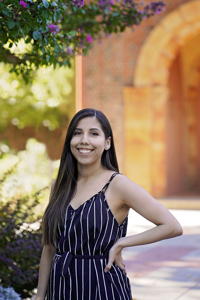 Hi there! My name is Arely Saldana, and I am in my second year as a Psychological Science graduate student. I graduated from Chico State in 2020 with my B.A. in Psychology with Honors in the major and a minor in criminal justice. In the past couple of years, I have come to consider the Chico State Psychology Department my second home. As such, I had a great time working on research with outstanding faculty, learning about the exciting world of psychology, and having the most intellectually stimulating discussions. I understand firsthand the struggles of being a first-generation college student and how daunting it can be to dive into academia without guidance or previous experience. Still, I believe resilience and dedication are key to success. As this year's Psychological Science program student ambassador, I am more than happy to share my experience and answer any questions you may have about the program and the resources available. Please don't hesitate to reach out to me at psycscience@csuchico.edu.
Hi there! My name is Arely Saldana, and I am in my second year as a Psychological Science graduate student. I graduated from Chico State in 2020 with my B.A. in Psychology with Honors in the major and a minor in criminal justice. In the past couple of years, I have come to consider the Chico State Psychology Department my second home. As such, I had a great time working on research with outstanding faculty, learning about the exciting world of psychology, and having the most intellectually stimulating discussions. I understand firsthand the struggles of being a first-generation college student and how daunting it can be to dive into academia without guidance or previous experience. Still, I believe resilience and dedication are key to success. As this year's Psychological Science program student ambassador, I am more than happy to share my experience and answer any questions you may have about the program and the resources available. Please don't hesitate to reach out to me at psycscience@csuchico.edu.
Interested in applying to the Psychological Science MA program?
We have prepared a separate page with complete application instructions(opens in new window).
The following faculty are open to the idea of possibly accepting new Psychological Science applicants into their research programs. We strongly suggest that you consider these specific faculty members as potential mentors when completing your application.
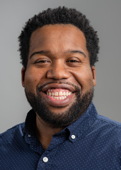
Email: mlbates@csuchico.edu
Dr. Bates is broadly interested in adolescent drug use and environmental factors that may contribute to it. More specifically, in his lab, students explore how social environment or stress affect the likelihood of using drugs in adolescence and how drugs change the adolescent brain. Feel free to reach out!
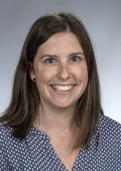
Email: sedemartini@csuchico.edu
My research focuses on coparenting across the transition to parenthood, and more recently, across the transition to having a second child. My work explores how coparenting quality is affected by individual parents’ behaviors within observed whole-family interactions. I am also interested in examining the relation of coparenting quality to young children’s socioemotional outcomes and the sibling relationship.
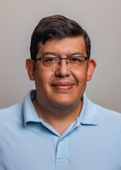
Email: ahgarcia-penagos@csuchico.edu
I have broad interests in the experimental analysis of human behavior including particularly the issues of behavioral rigidity and behavioral flexibility, decision making, choice, and symbolic behavior, particularly in social situations, both in the lab and in naturalistic settings. I also have interests in social cognition and social coordination and action. Finally, I have interests in the psychology of food and eating. In addition to this experimental areas, I am very fond of conceptual/philosophical work.

Email: psjohnson@csuchico.edu
I’m interested in the effects of economic variables (e.g., price, delay, probability, effort) on human decision-making. In many of our studies, my students and I focus on interactions between trait or state factors and environmental conditions that promote self-control or impulsivity with respect to different commodities (e.g., sex, drugs, food, technology). I’m ultimately interested in understanding the mechanisms underlying choice and applying this knowledge to prevention and treatment efforts for various maladaptive behaviors.

Email: mlippmann@csuchico.edu
I am fascinated by the ways we process information about the world and about each other. My research is at the nexus of educational, cognitive, and social psychology. Currently, my students and I are investigating informal online learning, prejudice and bias in digital communication, mindfulness in education, and predictors of student success and resilience. In addition, I am interested in non-normative relationship structures and comprehensive sexuality education.
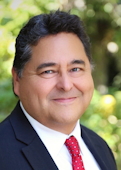
Email: rjtafalla@csuchico.edu
I can supervise students in the area of psychophysiology, health psychology, and environmental psychology. I have done extensive research in stress, noise and violent video games.

Email: MvandenBerg@csuchico.edu
My interests are in cognitive/experimental psychology. I am trained as a cognitive psychologist, and my main area of expertise is visual perception, more specifically perceptual organization. However, I have a broad interest in cognitive psychology and I can get excited about lots of topics that involve the investigation of mental processes and the factors that influence how information gets processed. Additionally, with my interest in experimental psychology, I also enjoy research projects that require an interesting methodology. As such I have supervised topics in a variety of topics, from the effectiveness of a mindfulness program for the increase of working memory capacity to an investigation of the factors that promote adherence to an exercise program.

Email: bywon@csuchico.edu
My research program integrates experimental and cognitive psychology approaches to address fundamental questions about attention, perception, and memory. One of my broad scopes of research interest is the selective mechanisms of visual attention and working memory in search behavior. For example, to find Wally in a “where’s Wally” book, we should maintain the information about Wally in memory (i.e., a template in working memory) while looking for Wally in the book to compare the “Wally” template to each visual object on the book. We repeat this process until we finally find the one. In my lab, I study the whole cognitive processes (working memory, attention, and decision making) using online and offline behavioral experiments.

Email: aewong@csuchico.edu
I research topics on self, identity, and narrative. It interests me how people understand themselves. The identities, self-understandings, and stories people tell about themselves matter because they are not simply inert, descriptive objects. Rather, they are powerful organizers of everyday life. Identity shapes how people think and feel about themselves, how rich or empty life seems, and how goals are pursued. My research has examined topics of self-esteem, self-concept, wellbeing, personality, adverse childhood experiences, and goal pursuit. I’m also interested in prejudice, discrimination, racism/sexism, gender, psychology of women, social norms, and attachment style.
Please see the course catalog for course requirements, prerequisites for classified status, and more.
Useful links: